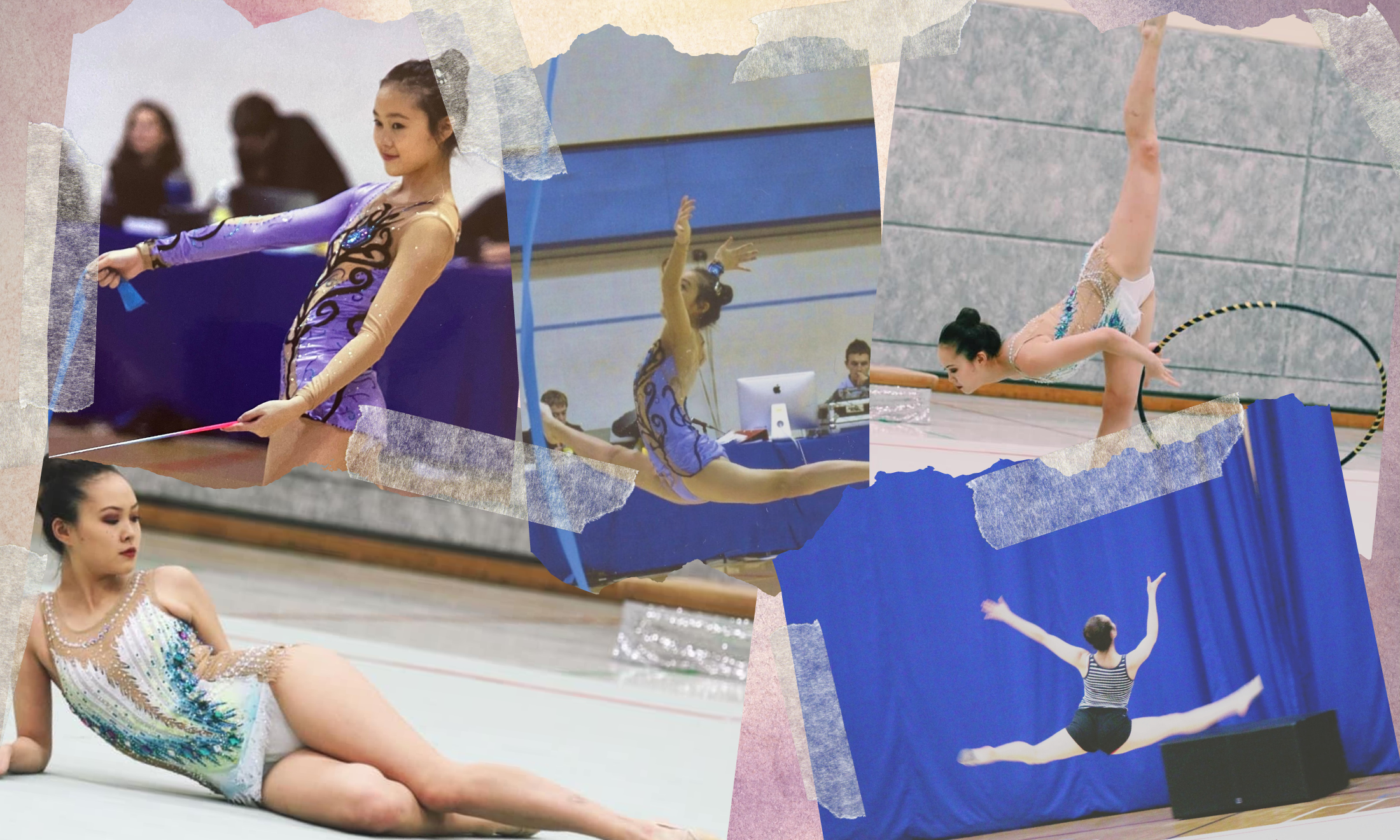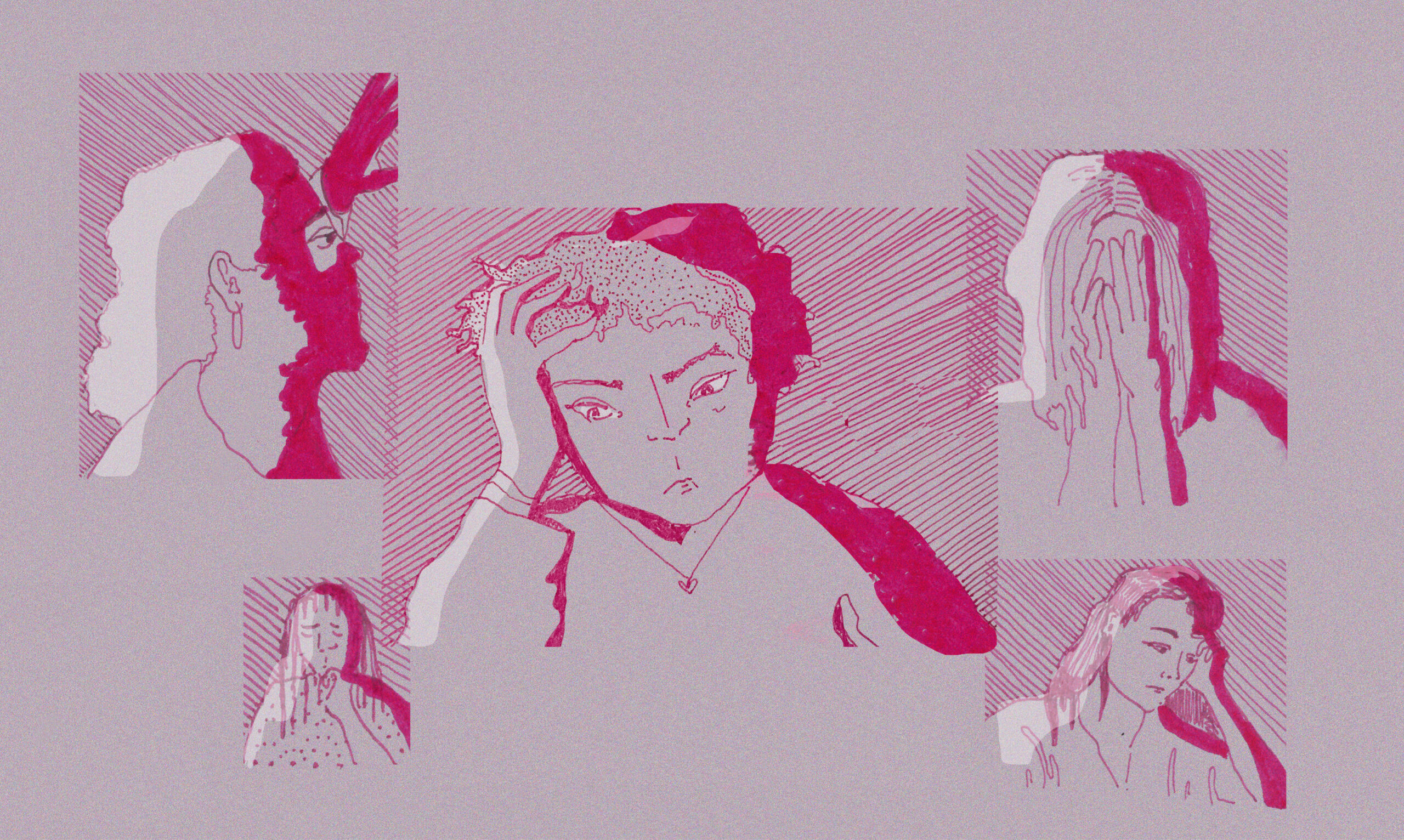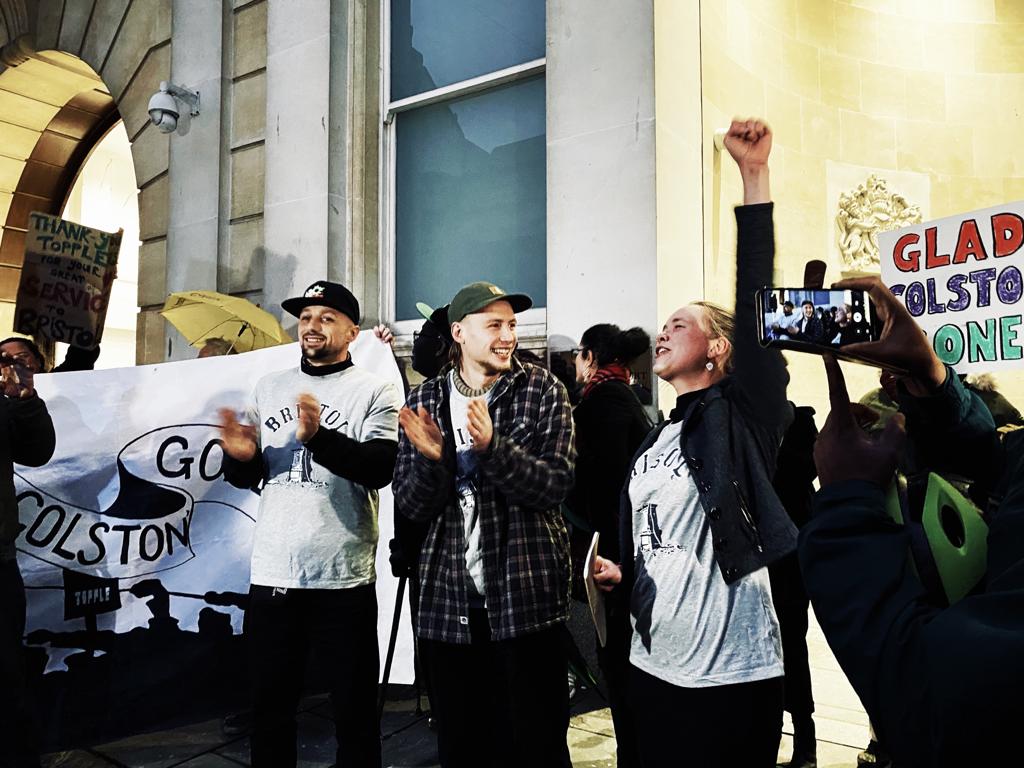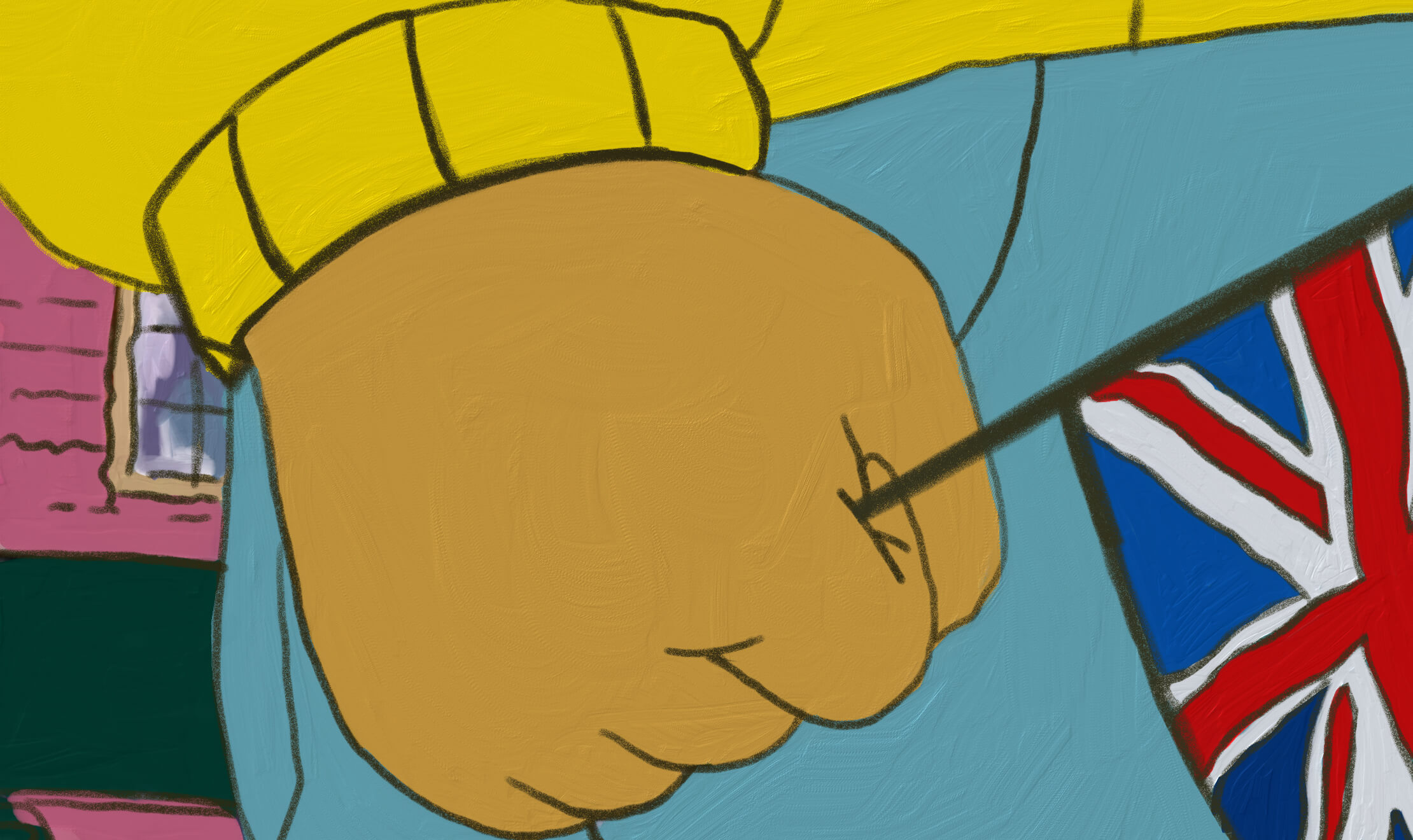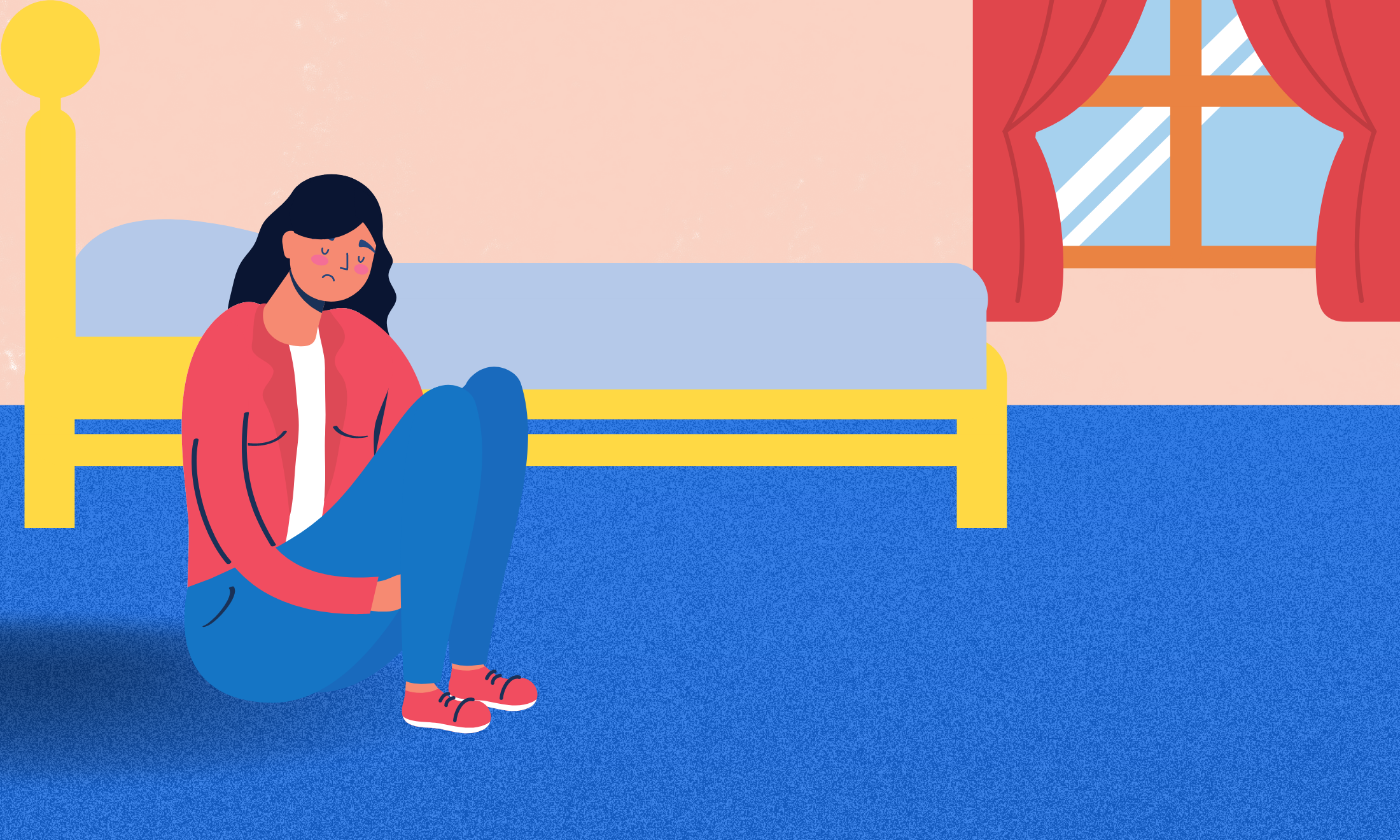
Canva
Honour based abuse has increased in the UK by 81% over the past five years. Why?
Like other forms of gendered violence, understanding honour based abuse is only the beginning in confronting it.
Alia Waheed
25 Nov 2021
Content warning: mentions of physic and emotional abuse
When Manpreet* was just 16 years old, her mum threatened that she would die by suicide. “She held a knife to her wrist,” Manpreet, now 33, remembers. “I couldn’t bear my mum doing that.”
Her mother’s threat was in response to Manpreet’s refusal to marry. As the eldest of three sisters, Manpreet was carrying a huge burden on her back in the eyes of her parents – that of the family’s ‘honour’.
Manpreet is from a traditional Sikh Punjabi family; her parents are first-generation migrants to the UK, who came in search of a ‘better’ life for their children. Like many diaspora families from South Asia, they were also determined to hold on to their traditions and culture.
However, growing up as British-Asian, Manpreet felt torn between two cultures. “My parents were really strict with me,” she says. “I wasn’t allowed to wear Western clothes, speak English in the house, and couldn’t go out to see friends.”
While restrictive, Manpreet’s parents didn’t cross a line into being abusive – until the day their daughter returned home from school and they told her she had to get married.
“I cried and said I wanted to go to college, but they wouldn’t listen,” recalls Manpreet. “I was beaten, then my mum started threatening to [die by] suicide”
Feeling alone and without other options, Manpreet married the man her parents had chosen. She only got to see him 10 minutes before the wedding, in her traditional wedding sari. She later discovered her husband had also been pressured into the marriage.
“The early years of marriage were really tough,” she says. “It turned out my husband didn’t want to get married. He was in love with a Polish girl so his family forced him to marry me to end the relationship. He stayed out all night and was abusive.”
Manpreet tried to leave her marriage but was forced by her family to return to avoid the scandal of a divorced daughter. Her sisters were “unsupportive,” she says. “They were scared my parents would crack down on them because I had brought shame on the family.”
What Manpreet suffered at the hands of her parents has a name: honour-based abuse (HBA). Defined as a “collection of practices used to control behaviour within the family and community in order to protect perceived cultural and religious beliefs and/or honour”, communities of colour are particularly at risk thanks to a complex range of factors, including concepts of family honour.
But instead of understanding and specialist support to tackle the issue, marginalised communities in the UK where HBA is particularly present experience stereotyping and ignorance, allowing the problem to continue. In the past five years, cases of HBA reported to UK police forces rose by a staggering 81%.
No honour in abuse
So why the rise in figures? Partly because, as with wider gendered violence, professionals have become better at identifying HBA and survivors are more empowered to report their experiences of it, thanks to more awareness about the issue and of where to go for help.
High-profile cases have drawn more attention to HBA in the UK, including that of Jasvinder Sanghera, an HBA survivor who went on to launch Karma Nirvana, a leading UK organisation for victims of honour-based violence. HBA was first ‘recognised’ in the UK after the 2007 murder of Banaz Mahmod, who was killed by relatives after leaving an abusive marriage.
Banaz’ brutal murder was seen as a “wake-up call” for police and other services, highlighting for the first time that cases of HBA needed a strategic approach and to be treated differently to other forms of gendered violence
There is also a growing awareness of the kinds of offences which constitute honour-based abuse. This can include the physical and the emotional; from coercive control like Manpreet’s mother threatening to harm herself if her daughter defied her wishes, to rape and harassment. Often, as is the case with gendered violence in general, it is the most extreme incidents of honour-based abuse that grab headlines, like murder.
Also, victims themselves are becoming better at identifying that what they are experiencing is abuse rather than ‘culture’ and have more confidence about coming forward.
Although Manpreet now realises what she went through is a form of honour-based abuse, she says at the time, she didn’t.
“I don’t think people really knew what honour-based abuse was,” she muses. “We thought it’s just the way things [were]. I think a lot of the decisions our parents made for us were driven by fear, because they were in this new country and faced lots of racism. I see the freedom girls have now and feel really jealous though.”
Manpreet believes things are “better now” when it comes to her own life and relationship. She and her husband have three children and she has part-time employment as a teaching assistant. Her marriage is not a loving one though.
“Me and my husband accept the situation and just get on with it,” she says of her relationship. “We have no other choice. It’s like a business arrangement.”
Tip of iceberg
There are estimated to be 12 to 15 so-called “honour” killings in the UK every year. But in recent years, campaigning has sought to include certain cultural practices, like female genital mutilation and forced virginity tests, as recognised forms of HBA. The common denominator linking the forms of abuse is the (often misogynistically derived) belief that the abuse is justified to defend the ‘honour’ of an individual, family or community.
However, many organisations who work with victims of HBA feel the figures of only the most extreme cases don’t paint an accurate picture of what is happening on the ground – particularly as the Home Office has only started collecting data from police forces on HBA offences since April 2019. Also, the key word, say those working in the space, is “reported” – according to support services, these figures are likely just the tip of the iceberg.
“Victims will be reluctant to report HBA until they are really desperate,” says Natasha Rattu, executive director of Karma Nirvana.“Many unknown victims are impacted that we don’t know about. Also when they are reported, they are not always flagged correctly so it is in no way an accurate picture of HBA, which is worrying. We are seeing a trend of it increasing, but we suspect it is far greater than the figures suggest.”
“I don’t think people really knew what honour-based abuse was. We thought it’s just the way things were”
Another key issue is a continued failure by the police to to categorise cases of HBA due to lack of understanding in identifying the crime. As HBA is associated with younger victims, aged 24 or under, where there are usually several perpetrators, older victims of HBA – such as women trying to leave abusive marriages – can be missed. It also means incidents of HBA are recorded as one off incidents rather than an ongoing pattern of abuse.
As with domestic violence, the Covid-19 pandemic appears to have exacerbated the number of cases of HBA, say workers in the space. There has also been a shift in the types of offences being committed.
“At different parts of the lockdown, we saw different things happening,” says Natasha, noting that there was a reduction in the number of children and young people coming forward to speak about HBA. On the positive side, travel restrictions saw a decrease in forced marriages that took place abroad. But, she adds, now those regulations have relaxed, rates are climbing again. Over the last year, Karma Nirvana has been involved with 52 cases involving victims aged between 11 and 15, and four with victims under 10.
A cultural issue?
Debates over how to understand – and subsequently tackle – honour-based abuse are heated. Some believe that it should be considered contextually as a particular form of gendered violence that is more likely to crop up in certain cultures. In contrast, others say that pinpointing South Asian communities, for example, as more disposed to HBA is a way of ‘Othering’ the issue and refusing to confront it.
Despite work by organisations such as Karma Nirvana, HBA remains a hidden crime, partly because of the victim’s own perception of bringing shame upon their family, or fear of forced marriage and violence. In some cases, victims may be dependent on the perpetrator, for example if they are on a spousal visa.
However, it goes much deeper than that with the complex dynamics of honour-based abuse and family relationships. How can you report it when the people abusing you are your loved ones and your wider community?
Roots of ‘honour’ are also embedded from a young age, particularly in the South Asian and Arab community. Although not abusive in themselves, competing cultural pressures can weigh heavily – and lead to punitive punishments within tight knit communities. Often the control and fear is established without spelling out the threat of violence. That threat is a given.
For women in the South Asian community, it can often feel that their lives are governed by the concept of family ‘izzat’. Although the word literally means ‘honour and respect’, there is an underlying understanding in the community that it also relates to the sexual purity and reputation of women.
“Although not abusive in themselves, competing cultural pressures can weigh heavily – and lead to punitive punishments within tight knit communities”
“From before you hit puberty, you know all about family izzat and the expectations on you,” says 23 year-old east Londoner Samira*. “It’s constant pressure from your family and society. Although nobody spells out the consequences of breaking the rules, there is an unsaid understanding.
“Living in an Asian area, you know if an ‘Auntyji’ [elder lady from the community] sees you dressing a certain way or going somewhere you shouldn’t, it is going to be all around the community.”
In Samira’s neighbourhood, when one girl was found to have transgressed past the boundaries of what was seen as honourable, she wasn’t the only one punished. “One friend got a job and started dating a guy, so my mum’s first reaction was, you can’t get a job because you will become promiscuous,” she says.
“I wanted to be a journalist since I was eight and that dream was taken away from me when I didn’t do anything. I wasn’t allowed to hang out with her anymore because she had a bad reputation and I would get one too.”
Contested approaches
Yet, the issue is often mischaracterised as only being culturally specific to South Asian communities. A 2020 empirical study into HBA concluded that a lack of comprehensive data hides much of the behaviours and patterns that comprise the abuse, indicating that there is a widespread misunderstanding of what HBA actually is and too often it is reduced or conflated with individual acts, like forced marriage or gential mutilation.
The research also found that while the little UK data available on identified HBA cases found that HBA has also been reported within communities ranging from Middle Eastern to Eastern European.
The study’s author, Dr Lis Bates, a research fellow at the University of Bristol, suggested that ‘honour’ is only seen as a ‘cultural’ form of abuse in these cases because the communities are Othered.
“I would question, however, whether the cultural elements in HBA cases may just be more “visible” to Western eyes, when in fact honor [sic] can be viewed as one of many cultural tools used by abusers,” wrote Bates.
It could be observed, added Bates, that “honour’ is characterised as a “culturally specific” weapon of control when the same phrase could just as well be applied to other forms of abuse.
“This perhaps underlines how practices in BME communities are often labeled “cultural,” whereas those specific to mainstream (White) cultures are labeled “gendered,” Bates concluded.
Viewing HBA through a cultural lens means cases can get miscategorised and some victims outside these cultures fall under the radar, says Natasha Rattu. “The fact that people associate it with some communities more than others is because of sensationalised media stories targeting marginalised groups,” she explains.
“Understanding the complex factors that distinguish HBA from other forms of gendered violence is key. One key facet is the collective nature of the offence”
“HBA happens in many different communities, but professionals often only identify it within particular communities because of the perception [they are] the only place where HBA can take place. For example, [Karma Nirvana has] had cases of Roma children who were exposed to child marriage, but because they are not South Asian, the abuse is missed which is worrying,” says Natasha.
Understanding the complex factors that distinguish HBA from other forms of gendered violence is key. One key facet is the collective nature of the offence; figures from the charity Safe Lives showed 54% of HBA victims were abused by multiple people centred around family or partners.
“The rise in so-called honour-based violence absolutely must be situated within our broader understanding of violence against women,” says Dr Samantha Walker, lecturer in Criminology at Northumbria University who researches violence, in particular honour-based violence.
“Although many of the dynamics of honour-based abuse may differ from other forms of domestic abuse, honour-based abuse remains, at the core, a deeply gendered crime rooted in complex gendered power dynamics,” she says, adding that lockdown’s detrimental impact has also affected honour-based abuse victims.
“With HBA, it’s about the motive which is a precursor to the abuse, which is this desire to uphold honour,” says Natasha. “That’s what professionals need to be looking at, not the community and profiling it because we then come with profiling judgements and stereotypes.”
Speaking out
Speaking out against HBA carries great risk; if a woman comes forward, there are often ramifications for the rest of the family, especially other women relatives who are seen as guilty by association, which also adds to the culture of silence around the issue.
The role of the community in perpetrating or condoning abuse means that when survivors of HBA speak out, they can’t return to their old lives and are forced to cut ties with loved ones and friends and restart their lives alone.
Since Kaneez*’s sister ran away from home two years ago after falling in love with a man her parents wouldn’t accept, Kaneez, says her parents have made her ‘live like a prisoner’ to prevent her doing the same.
“My older sister fell in love with a white guy and knew my parents would kill her so she ran away,” explains Kaneez, 18, from Bradford. “I really miss her, but my parents said they will send me to Pakistan forever if I contact her.
“After she left, my parents were always suspicious and I wasn’t allowed to go out with friends. They even dropped me to college and picked me up and would interrogate me if I came out of class late. I’m not allowed a phone or anything. When my course finishes, I have to stay home until I have an arranged marriage. I just want to get married and get out of here.”
When Kaneez is asked if she perceives what she is facing as a form of HBA, she shakes her head. “Honour abuse is stuff like honour killings isn’t it?” she says, uncertainly. “Who is going to believe me, when I don’t have any bruises that you can see anyway?”
Regardless, Kaneez sees her lot in life as fixed.
“I wouldn’t go to the police because they are still my mum and dad,” she says of her parents. “When my sister left, it was really bad the way the community reacted and because of what she did, I get tarred with the same brush. I know she had to get out, but I’m the one she left behind.”
*names have been changed to protect identities

Britain’s policing was built on racism. Abolition is unavoidable

How Pakistan’s Khwaja Sira and transgender communities are fearing and fighting for their futures

Their anti-rape performance went viral globally. Now what?



